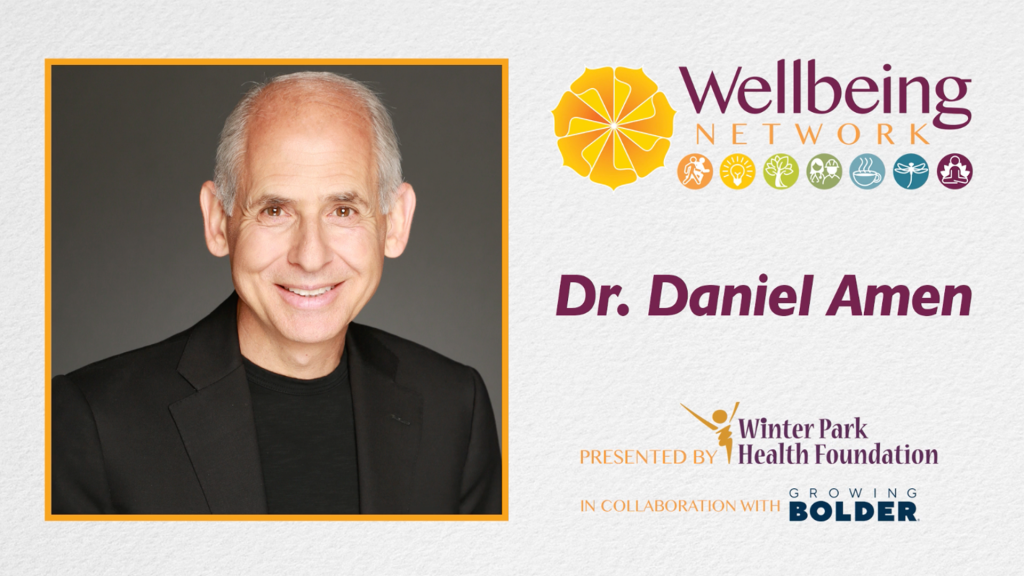This is Your Brain on Politics
Posted July 17, 2021 | By admin
If you are like me, you’re feeling a bit wary about discussing politics right now. During the 2020 election season, you might have found yourself embroiled in tense political exchanges with friends, family members, and strangers on either side of the aisle, both in-person and online. In fact, while I had hoped to learn something fun during the pandemic (like tending a sourdough starter), I mostly learned how to avoid political conversation at all costs.
As a communication professor at Rollins College, I know that I am not alone in my discomfort with political debate. Through research published in 2019, communication scholar Cynthia Peacock found that 63 percent of the 150 American adults she surveyed admitted to staying silent when politics comes up in conversation. Similarly, 67 percent of Peacock’s participants described “averting” the conversation, either by changing the subject, leaving the situation, or by verbally refusing to discuss politics.
So, why do we avoid political conversations? Peacock’s research participants named several reasons: they did not want to ruin a relationship. They wanted to avoid conflict. They feared that they weren’t competent enough to have a successful debate, or they believed that their partner was simply uninformed or misguided.
These avoidance motivations are pretty predictable. But Peacock identified one other motivation that caught my attention: people do not talk about politics because they feel that these conversations are futile. In other words, they were not convinced that talking about politics will cause anyone to change their opinions. Sometimes, talking about politics can feel like interacting with someone from an alternate reality; everything looks the same, but the people don’t act how you would expect them to.
In some ways, this is the truth. While you and your partner might debate the same “facts,” the way that each of you literally thinks about politics—the actual structure of your brain—may be different. So, to understand why political debates sometimes feel futile, we must learn a teeny bit of cognitive science.
Metaphors and the Cognitive Science of Politics
Most of us understand what a stereotype is. It is a set of cognitive generalizations—beliefs and expectations—that we use to make assumptions about people who we think belong to a particular category (ex. generation, profession, race, religious group etc.). While we know that stereotypes can be incorrect and harmful, stereotyping is functional for our brains because we are cognitive misers; we only have so much brain energy to spend on making sense of the world around us. So, we rely on stereotypes and other heuristics (mental shortcuts), to make quick judgements about people.
Like stereotypes, metaphors are heuristic devices that help our brains process complex information. Metaphors help us to understand one concept by viewing it in terms of a familiar idea or experience. For instance, in politics, opponents of the Affordable Care Act famously used the metaphor of broccoli to oppose the insurance mandate, suggesting that the government requiring citizens to purchase health insurance was like a parent forcing their child to eat a despised, healthy vegetable. Republicans protested “Barackoli” and the Affordable Care Act as a threat to individual choice. Of course, metaphors are often incomplete and imperfect. For instance, supporters of the ACA pointed out that, while a child could still be well-nourished even if they refused to eat broccoli, an American citizen would probably face significant physical and financial harm if they had a health crisis while uninsured.
The example of “Barackoli” illustrates how a metaphor might be used to make sense of a single political issue. However, cognitive linguist and philosopher Dr. George Lakoff theorizes that our brains use metaphors to understand the nature of government more generally. In his 1996 book, Moral Politics, Lakoff proposed that the gulf between how conservatives and liberals think and talk about politics can be traced to one thing: each group has internalized two very different “central” metaphors to explain the role of government.
Lakoff suggests that conservatives view politics through the lens of the “strict father model.” In this metaphor, the government acts like the father from a 1950s sitcom. Its role is to discipline citizens who are inherently unruly, to teach citizens to be independent and self-reliant, and to defend these citizens from a scary and threatening world. In this metaphor, the citizen’s role is to be obedient. Patriotism means never questioning that America is exceptional and that the traditional American way of life is ideal for all. Thinking through this metaphor, one can begin to understand support for policies that focus on defense (e.g., funding for a border wall; protection of gun rights), self-sufficiency (e.g., resisting the expansion of Medicare; reducing taxes), and an America-first approach (e.g., critiquing international agreement like the Paris Climate Agreement).
In contrast, Lakoff theorizes that liberals and/or progressives view politics through the lens of the “nurturant parent model.” According to this metaphor, the government’s role is to be empathetic to its citizens’ struggles, to protect its citizens from their own mistakes and offer guidance, and to ensure its citizens’ wellbeing in a world that is generally good but could be improved. In this metaphor, the citizen’s role is to be curious. Patriotism means engaging in self-critique to improve the American way of life. Thinking through this metaphor, it becomes clear why progressives tend to be concerned with issues of social justice and might support policies that provide equitable access to education, healthcare, food, etc.
According to Lakoff, these metaphors are not just linguistic, but also cognitive. Thinking through metaphors shapes the way that we make associations between different concepts in our minds AND brains. We make different figurative connections in the process of making different neural connections.
So, is Political Debate Futile?
Research like Lakoff’s adds some science behind the feeling that you are debating with someone from an alternate universe. So, are we doomed to continue talking past each other without gaining any traction? Not necessarily. Understanding that the person you are speaking with is thinking through a different metaphorical lens is quite helpful for several reasons. First, it reminds you that, even if the person seems completely nonsensical to you, there is a logic behind their political beliefs. Remembering this can help you to avoid treating the other person with contempt—an approach that is bound to create hurt feelings and conflict.
Second, Lakoff’s research helps us to understand why people pay attention to some values more than others when making political decisions. For instance, the Network for Public Health Law applies moral foundations theory, explaining that we can have more effective political discussions when we tie our arguments to what our “opponent” values. For instance, liberals tend to value caring for others and reducing oppression, while conservatives tend to pay closer attention to fairness, loyalty, respect for authority, and the sanctity of life. So, rather than assuming that debate is futile, instead consider how you might frame your political issues using the values that are core to the other person’s identity. For instance, how is a mask mandate an issue of caring for others (a liberal value) AND an issue of fairness (a conservative value)? If you search for a way to think through the other person’s metaphor, you might just find yourselves on the same (brain) wavelength.
About the Author

Sarah Parsloe is an assistant professor in the department of Communication at Rollins College in Winter Park, Florida, where she teaches classes on interpersonal communication, health communication, and public relations. Her research examines the ways in which people make sense of identity threats that arise from experiences of disability and chronic illness, including uncertainty, stigma, and prejudice against people with disabilities (ableism). She is particularly interested in studying the communication processes of (self-)advocacy. Parsloe holds a Ph.D.D in Communication from Ohio University. She has also co-authored a book with Dr. Patricia Geist-Martin entitled Falling in Love with the Process: A Stroke Survivor’s Story.
Take Your Wellbeing a Step Further with These Related Resources from the Wellbeing Network
Learn: Brain Games: Separating Fact from Fiction
Engage: The Hidden Messages in Your Favorite TV Shows: Uncovering Hollywood, Health and Society
Be Inspired: Use Your Brain to Change Your Age



